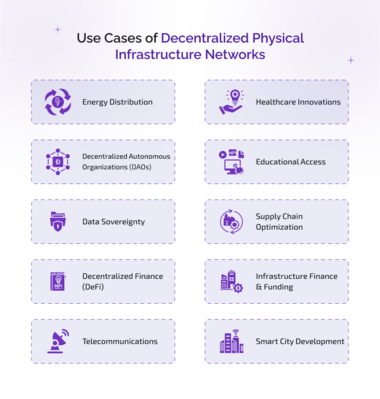Bedding Insights
Exploring the latest trends and tips in bedding and sleep comfort.
Decentralized Player Protection: Gaming's New Trust Game
Discover how decentralized player protection is transforming the gaming landscape. Uncover the secrets to trust and security in your favorite games!
Understanding Decentralized Player Protection: How Blockchain is Changing Gaming Trust
As the gaming industry continues to evolve, decentralized player protection is becoming a key focus, particularly with the integration of blockchain technology. Traditional gaming platforms often suffer from issues like fraud, data mishandling, and lack of transparency, leading to a lack of trust among players. By utilizing a decentralized system, where data is securely stored on a blockchain, players can experience improved security and integrity in their gaming transactions. This transparency not only enhances player confidence but also ensures that in-game assets and achievements are protected against manipulation, thus fostering a safer gaming environment.
Moreover, blockchain introduces a revolutionary approach to player trust through the use of smart contracts. These self-executing contracts facilitate automatic payouts and verification of achievements without the need for intermediaries. As a result, players can engage in gaming activities knowing that outcomes and rewards are legitimate and verifiable. This shift not only empowers players but also incentivizes game developers to maintain fairness and integrity, thereby transforming the overall gaming landscape into a more trustworthy environment. In this new paradigm, decentralized player protection is not just a trend—it's becoming an essential element of the gaming experience.

Counter-Strike is a highly popular first-person shooter game that has captivated millions of players worldwide. The game focuses on team-based gameplay, where players can choose to be either terrorists or counter-terrorists, and complete various objectives. If you're looking to enhance your gaming experience, consider checking out a stake promo code for some exciting offers!
The Role of Smart Contracts in Ensuring Fair Play: A Deep Dive
Smart contracts are revolutionizing the way agreements are formed and executed in various industries, providing a foundational layer for ensuring fair play. These self-executing contracts, with the terms of the agreement directly written into code, automate processes and reduce the need for intermediaries. This decentralization not only enhances efficiency but also minimizes the potential for fraud or manipulation, which is crucial in maintaining trust among parties. In sectors such as finance, real estate, and gaming, smart contracts serve as an essential tool in establishing transparency and accountability, thereby fostering an environment where fair play can thrive.
Furthermore, smart contracts incorporate immutable blockchain technology, ensuring that once a contract is created, its terms cannot be altered without the consent of all parties involved. This feature is vital for institutional integrity, as it guarantees that all actions and decisions taken under the contract are transparent and verifiable. For example, in online gaming, smart contracts can guarantee that the terms of a game are adhered to, thus preventing cheating and ensuring that rewards are distributed fairly. Ultimately, by leveraging the power of smart contracts, industries can foster a culture of fair play that benefits all stakeholders involved.
Is Decentralization the Future of Player Safety in Online Gaming?
The landscape of online gaming is rapidly evolving, with decentralization emerging as a key player in enhancing player safety. By distributing data across a network of nodes rather than relying on a centralized server, decentralization minimizes the risk of data breaches and unauthorized access. Furthermore, smart contracts can provide a secure environment for transactions, ensuring that players are protected from fraud and cheating. This shift not only promotes trust among players but also fosters a more equitable gaming experience, as decisions regarding game rules and governance can be made collectively rather than dictated by a singular entity.
Moreover, decentralization empowers players by giving them greater control over their in-game assets. Through the use of blockchain technology, players can truly own their virtual items, which can be traded or sold without the fear of being at the mercy of a central authority. This ownership can be particularly significant in competitive online gaming, where the integrity of gameplay is paramount. As we advance into a new era of gaming, the potential for decentralized platforms to enhance player safety will be a determining factor in their adoption and success, ultimately shaping the future of the gaming industry.